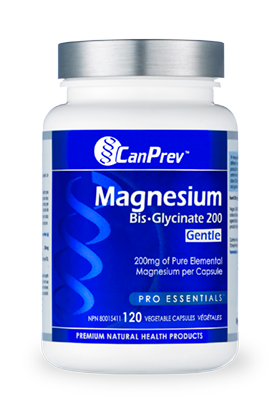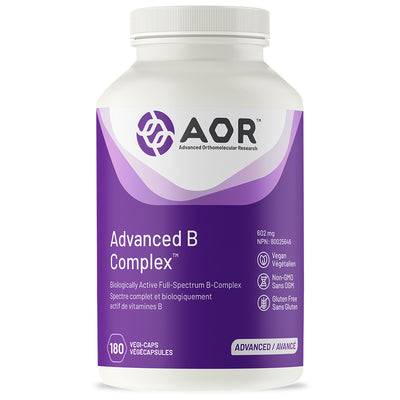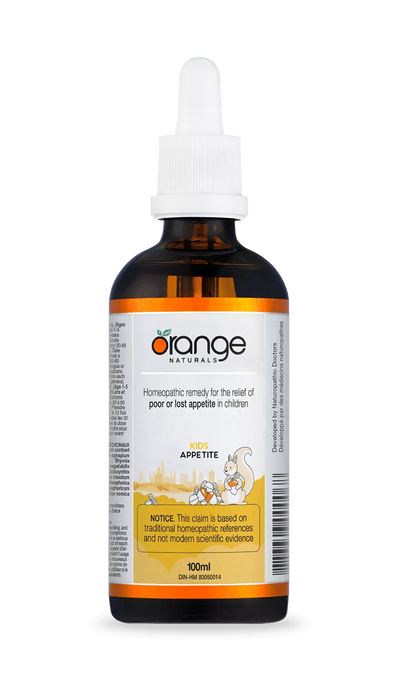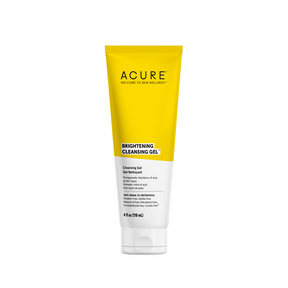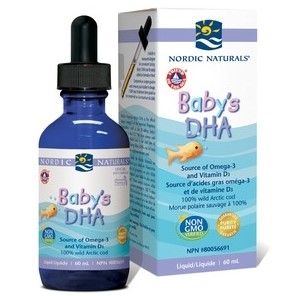Understanding Hair Loss: Causes and Natural Strategies for Prevention
Reviewed by Aleksandra Morgan, CNPHair loss can be a distressing experience for people at all life stages, impacting not only physical appearance but also self-confidence and emotional well-being. While genetic predisposition often plays a significant role in gradual hair loss, several other factors can contribute to acute or rapid hair loss, including hormonal imbalances, nutritional deficiencies, and lifestyle habits. In this blog, we'll explore some common causes of hair loss, focusing on high DHT levels, thyroid issues, lack of nutrients, lack of protein, and other factors. Then, we'll delve into natural strategies that can help prevent or mitigate hair loss.
Potential Hair Loss Causes & Factors
High DHT Levels
High levels of dihydrotestosterone (DHT), a potent derivative of testosterone, have been linked to male and female pattern hair loss, also known as androgenetic alopecia. DHT binds to receptors in the scalp, shortening the hair growth phase and prolonging the resting phase. This results in thinner, weaker hair strands that are more prone to shedding. DHT is present in both men and women, but can particularly affect individuals genetically predisposed to hair loss. Over time, hair follicles affected by high DHT may cease producing new hairs altogether, leading to noticeable hair thinning and eventual baldness.
Thyroid Disorders
Thyroid disorders, including hypothyroidism (an underactive thyroid) and hyperthyroidism (an overactive thyroid), can have profound effects on hair health and growth. In hypothyroidism, a decrease in thyroid hormone production can lead to a slowdown of bodily functions, including hair growth, resulting in brittle, dry hair that is prone to breakage and shedding. Conversely, hyperthyroidism can accelerate the hair growth cycle, causing hair to become thin and fragile, and may lead to increased hair shedding.
PCOS
Polycystic ovary syndrome (PCOS) is a common hormonal disorder characterized by imbalances in sex hormones, insulin resistance, and ovarian cysts. Women with PCOS often experience symptoms such as irregular menstrual cycles, weight gain, acne, and excessive facial hair growth (hirsutism). One of the lesser-known symptoms of PCOS is hair loss or thinning, which can occur due to elevated levels of androgens (such as testosterone and DHT) and insulin resistance. These hormonal imbalances can disrupt the hair growth cycle, leading to increased shedding, thinning of the hair on the scalp, and sometimes the development of male-pattern baldness.
Autoimmune Causes
Autoimmune conditions occur when the immune system mistakenly attacks the body's own tissues, including hair follicles, leading to hair loss. Alopecia areata is one of the most common autoimmune causes of hair loss, characterized by sudden, patchy hair loss on the scalp or other parts of the body. In alopecia areata, immune cells target the hair follicles, causing them to enter a resting phase prematurely and resulting in hair shedding. Other autoimmune conditions, such as lupus erythematosus and thyroid disorders (Hashimoto's thyroiditis and Graves' disease), can also cause hair loss as a secondary symptom.
Nutrient Deficiencies
Adequate nutrition is fundamental for maintaining healthy hair growth, and deficiencies in essential vitamins and minerals can significantly impact hair health. For instance, iron deficiency anemia is a common cause of hair loss, as iron plays a crucial role in transporting oxygen to the hair follicles. Similarly, deficiencies in biotin (vitamin B7), vitamin D, vitamin E, and zinc have been associated with hair thinning and increased shedding. Biotin, in particular, is essential for the production of keratin, the protein that makes up hair strands, while vitamin D promotes hair follicle cycling and regeneration.
Stress
Chronic stress can take a toll on both physical and mental health, and it's no surprise that it can also contribute to hair loss. When the body is under stress, it releases hormones like cortisol, which can disrupt the hair growth cycle and lead to increased shedding. Additionally, stress can trigger conditions like telogen effluvium, where a significant number of hair follicles enter the resting phase prematurely, resulting in sudden and noticeable hair loss. Stress-related hair loss can occur rapidly in acute stressful situations, like the loss of a job or a loved one, or can gradually increase as stress builds in the body over time.
Protein and Collagen
Protein is the main component of hair, and adequate intake is essential for producing and maintaining strong, healthy strands. Hair follicles require a steady supply of amino acids, the building blocks of protein, to produce keratin, the structural protein that gives hair its strength and resilience. Collagen, another protein abundant in the body, is crucial for maintaining the integrity of the hair follicle and supporting hair growth. Without enough protein and collagen, hair may become weak, brittle, and prone to breakage. Additionally, collagen supplements or collagen-rich foods like bone broth may provide additional support for hair follicle strength and resilience.
Natural Strategies for Prevention
Balanced Diet and Regular Exercise
Adopting a balanced diet rich in whole foods, including fruits, vegetables, lean proteins, and healthy fats, can help regulate insulin levels and hormone balance in women with PCOS. Incorporate fiber-rich foods to aid digestion and manage blood sugar levels. Regular exercise, such as cardio and strength training, can improve insulin sensitivity and promote overall health, potentially reducing hair loss associated with PCOS.
Explore natural supplements such as inositol, omega-3 fatty acids, and spearmint tea to manage hormonal imbalances associated with PCOS and support healthier hair growth.
Stress Management and Immune Support
Since stress can exacerbate autoimmune conditions like alopecia areata, prioritizing stress management techniques such as meditation, yoga, or deep breathing exercises can help reduce overall stress and the risk of hair loss. Additionally, supporting immune health through a balanced diet, adequate sleep, and supplementation with immune-boosting nutrients like vitamin C, zinc, and probiotics can help modulate immune function and reduce autoimmune-related hair loss.
Natural supplements like turmeric, omega-3 fatty acids, and probiotics can help reduce inflammation and support immune health, potentially alleviating autoimmune-related hair loss.
Consider Rhodiola rosea, L-theanine, or magnesium supplements to reduce stress levels and support hair health.
DHT Blockers and Scalp Health
Incorporating DHT-blocking shampoos or topical treatments containing ingredients like saw palmetto can help inhibit the effects of DHT on the hair follicles, potentially slowing down hair loss. Additionally, maintaining a healthy scalp environment through regular cleansing, gentle massage, and scalp exfoliation can promote hair follicle health and reduce the impact of high DHT levels on hair growth.
Consider saw palmetto, Pygeum bark, or stinging nettle root supplements, which inhibit DHT production or activity and promote healthier hair growth.
Optimal Thyroid Management and Nutritional Support
For individuals with thyroid disorders, ensuring optimal thyroid hormone is essential for preventing hair loss. Additionally, supporting thyroid function with a nutrient-rich diet, including iodine-rich foods like seaweed, selenium-rich foods like Brazil nuts, and zinc-rich foods like oysters, can help maintain thyroid health and promote hair growth.
Explore ashwagandha, iodine, selenium, or L-tyrosine supplements to support thyroid function and promote hair health.
Nutrient-Rich Diet and Supplementation
Consuming a diverse range of nutrient-rich foods, including fruits, vegetables, lean proteins, whole grains, and healthy fats, can help prevent nutrient deficiencies that contribute to hair loss. Consider incorporating supplements such as biotin, vitamin D, iron, and omega-3 fatty acids if dietary intake is insufficient to support optimal hair health.
Protein-Rich Diet and Collagen Supplementation
Ensure adequate intake of protein-rich foods such as lean meats, poultry, fish, eggs, legumes, and nuts to support hair health and promote hair growth. Consider incorporating collagen supplements or collagen-rich foods like bone broth into your diet to provide additional support for hair follicle strength and resilience.
Incorporate collagen peptides, gelatin, or silica supplements to support hair strength and resilience.
In addition, here are some of our favorite hair support formulas:
BIO-FEN PLUS FOR MEN BioFen is formulated to support hair growth in men with hereditary androgenic alopecia (AGA) by inhibiting the enzyme that contributes to high DHT levels, which contributes to hair loss.
CANPREV HEALTHY HAIR CanPrev’s Healthy Hair supplement reduces hair loss after three months, and stimulates hair growth by prolonging the growth phase of the hair cycle. The product features Keranat, a patented preparation from gluten-free millet and wheat extracts, along with biotin, zinc, and vitamin B6, which together enhance hair volume, health, and beauty.
This product supports healthy hair growth in both men and women with a blend of biotin, bamboo extract rich in natural silica, stinging nettle, and other nutrient-rich herbal extracts. Formulated to strengthen and nourish hair, it also includes powerful DHT blockers to combat testosterone- and age-related hair loss, helping maintain hair health and promoting a fuller, thicker appearance.
As we can see, hair loss can have various underlying causes, ranging from hormonal imbalances to nutritional deficiencies and lifestyle factors. It may also be an indicator of some deeper concerns, so if you aren’t sure why you are losing hair please consult your doctor. While genetic predisposition may play a significant role, adopting natural strategies for prevention can help mitigate hair loss and promote healthy hair growth. By focusing on a balanced diet, stress management, gentle hair care practices, and incorporating herbal remedies when appropriate, we can take proactive steps to support optimal hair health. Remember, consistency and patience are key when implementing these natural strategies, as improvements in hair health may take time to manifest.
If you’d like to discuss the best approach for you, we have complimentary consultations with our nutritionist available with every order.
Disclaimer: The information provided in this blog is for educational purposes only and should not be considered as a substitute for professional medical advice, diagnosis, or treatment. Always seek the guidance of a qualified healthcare provider regarding any medical condition, dietary changes, or supplementation.


